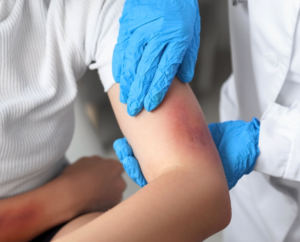2018
The First Ten: A Decade of Impact at the University of Chicago Crime Lab and Education Lab
We are pleased to share our report, The First Ten: A Decade of Impact at the University of Chicago Crime Lab and Education Lab. While there is no way to adequately express our gratitude to the extraordinary people and organizations with whom we have worked over the last decade, we offer this report as a tribute to you all.
We started the University of Chicago Crime Lab in 2008 and the Education Lab in 2011 because of the unconscionable levels of gun violence and social inequity in Chicago and across the nation. We firmly believed that the University of Chicago was in a position to do more to be a part of the solution.
Over the last decade, we have sought to use rigorous research and data to pursue answers, insights, and scalable solutions, working closely with those most deeply affected by gun violence and educational inequity. To do this work, we joined forces with those already developing and implementing promising ideas across the public, non-profit, and private sectors. We’ve tried our best to approach this work with humility, honesty, vigor, and a seriousness of purpose.

Agent-Based Model of Combined Community- and Jail-Based Take-Home Naloxone Distribution
This paper outlines the impact and cost-effectiveness of naloxone distribution, particularly for people facing criminal justice involvement.

Empirical Analysis of Prediction Mistakes in New York City Pretrial Data

Policing Substance Use: Chicago’s Treatment Program for Narcotics Arrests – Working Paper
This working paper sheds light on the effectiveness of diversion programs by showcasing Chicago’s drug diversion program success in reducing drug-related arrests.

Brookings Institution Commentary: Making the invisible epidemic visible
Using new data from a large urban trauma center in Chicago, we document substantial under-reporting of domestic violence at the time of receiving medical care.
Latest Updates
Former NYPD Chief of Department Kenneth E. Corey Named Executive Director of the Policing Leadership Academy
CHICAGO, IL — The University of Chicago Crime Lab today announced that Kenneth E. Corey has been appointed Executive Director of its Policing Leadership Academy (PLA), a first-of-its-kind executive education program designed to help police leaders reduce gun violence and build trust in the communities they serve.

Homicide rate declines sharply in dozens of US cities, a new report shows
The AP’s Claudia Lauer speaks with Crime Lab faculty director Jens Ludwig about the declining homicide rate in cities across the United States.

What it will take to fix American policing
Host Megan McArdle speaks with former New York City police commissioner William Bratton and former NYPD chief and new Policing Leadership Academy executive director Kenneth E. Corey about their work at the Academy and the program’s goals to reduce violence and improve fairness in policing.

